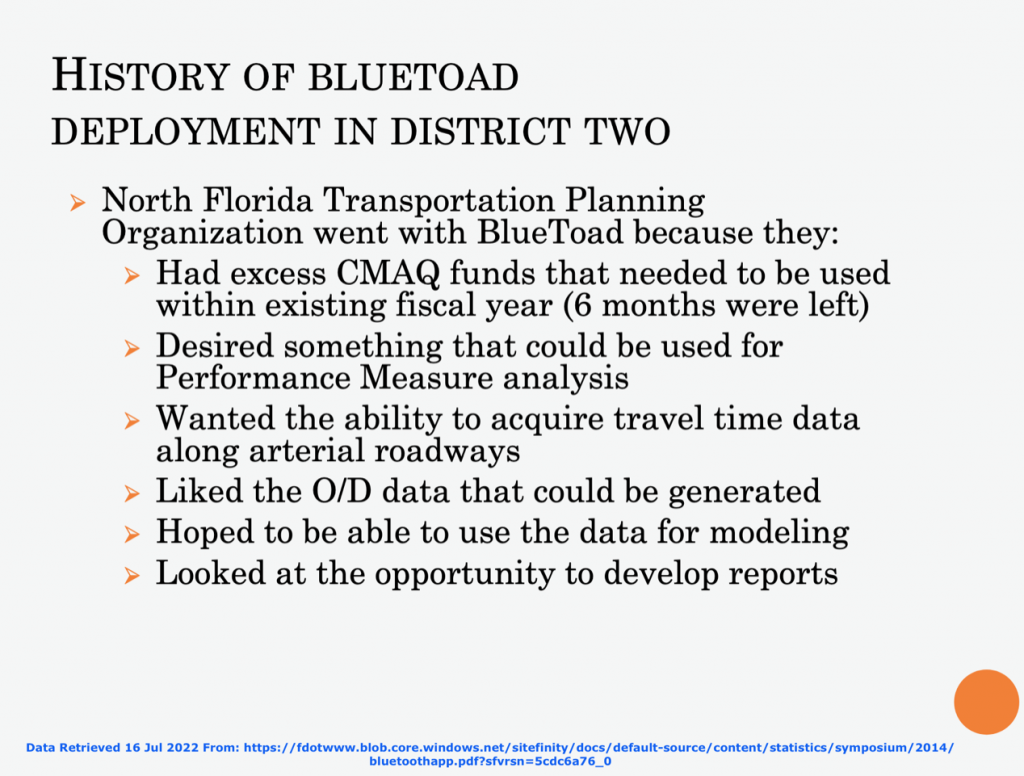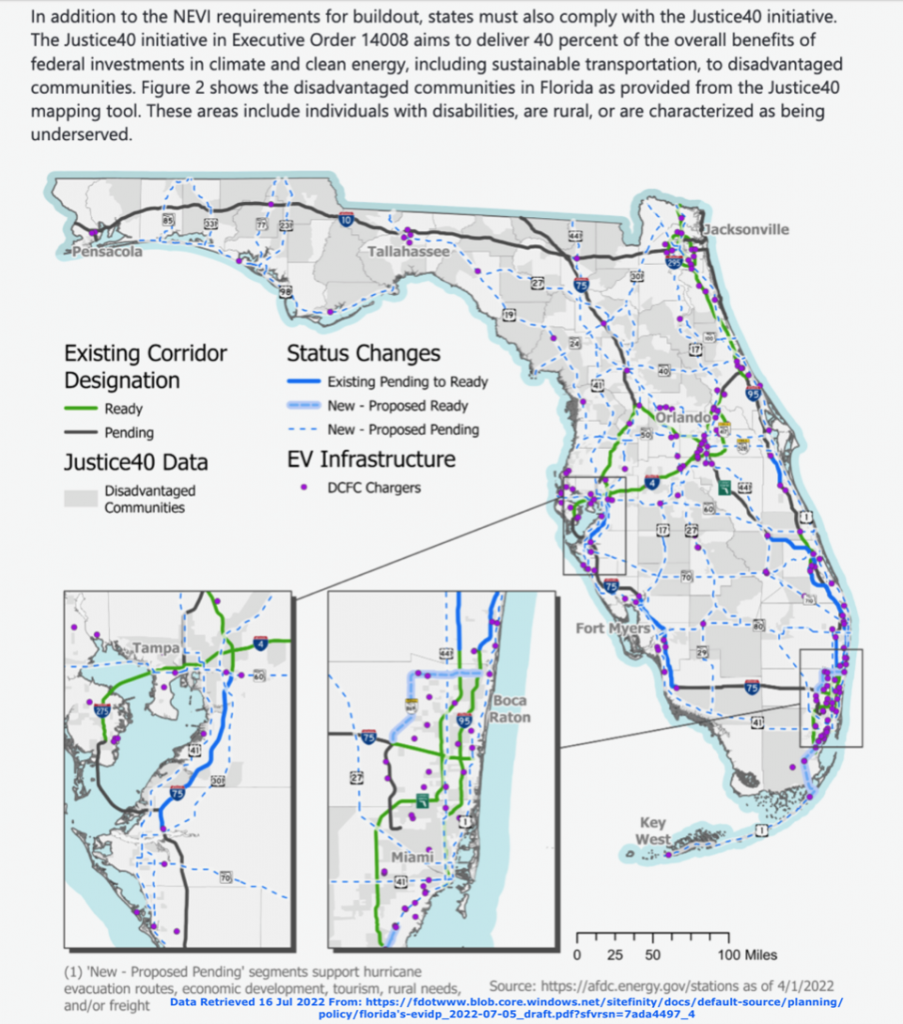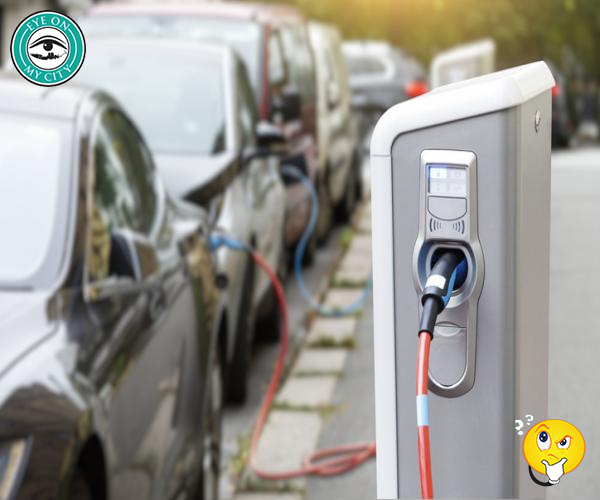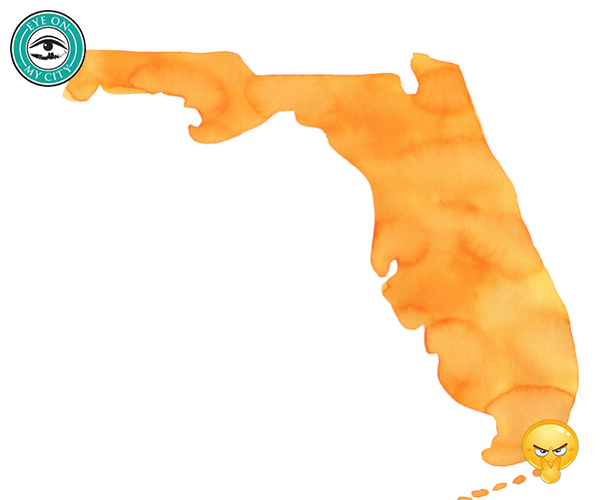Have you ever used a treat to coax your pet to act in some specific manner, hoping the morsel would initiate the desired behavior? Well, cities across the nation are the pets and our federal government is the dispenser of treats.
In 2013, the North Florida Transportation Planning Organization (NFTPO) did not use their allotted Congestion Mitigation and Air Quality Improvement program funds. So, they opted to spend those dollars to on a new tracking system, BlueToad.

BlueToad uses Bluetooth devices within a vehicle to track the vehicle’s speed, travel times, and movements. The data is transmitted in real time to the Regional Transportation Center in downtown Jacksonville.
If you travel the main arteries of Clay, Duval, Nassau, or St. Johns counties, your spouse may not know where you are, but Big Brother in Jacksonville does.
In 2015, the federal Department of Transportation put out its first Smart City Challenge with a $40 million carrot, and the NFTPO went after that $40 million dollar carrot. The challenge required collection of vehicle movement data, reduced carbon emissions, and expanded transportation for underserved communities.
In the 2016 application submission the planning organization cited the BlueToad tracking system. They also cited spending $300,000 to install 25-30 charging stations for the region’s 267 registered electric vehicles. The DOT ended up awarding that carrot to Columbus, Ohio.
In 2021, President Joe Biden signed the Infrastructure Investment and Jobs Act into law. In February 2022 the U.S. Departments of Energy and Transportation announced $5 billion in grants available for electric vehicle infrastructure. A state’s plan must serve disadvantaged areas and underserved communities. It also says that states are urged to comply with the presidents “Justice40” initiative where 40 percent of funds go to disadvantaged communities. In accordance with “Justice40”, the plan must address one or more of these seven areas: climate change, clean energy, clean transit, affordable housing, workforce development, reduction of pollution, and clean water infrastructure.
The state of Florida has applied for and received more than $29 million of the $198 million allotted to states, disbursed over a 5 year period, to build an electric vehicle Infrastructure. Each county will receive a portion of these funds. Social justice, environmental justice, climate change, and equity policies are the side dishes for this giant carrot.
Using carrots like this is how the federal government gets its hand in local policies and governing.
The federal government offers money it will borrow to state and local governments, who always say they have to snap at the bait for fear it will go somewhere else. Then, once on the hook, they become obligated to follow all the accompanying rules and regulations, which some might otherwise forego.




